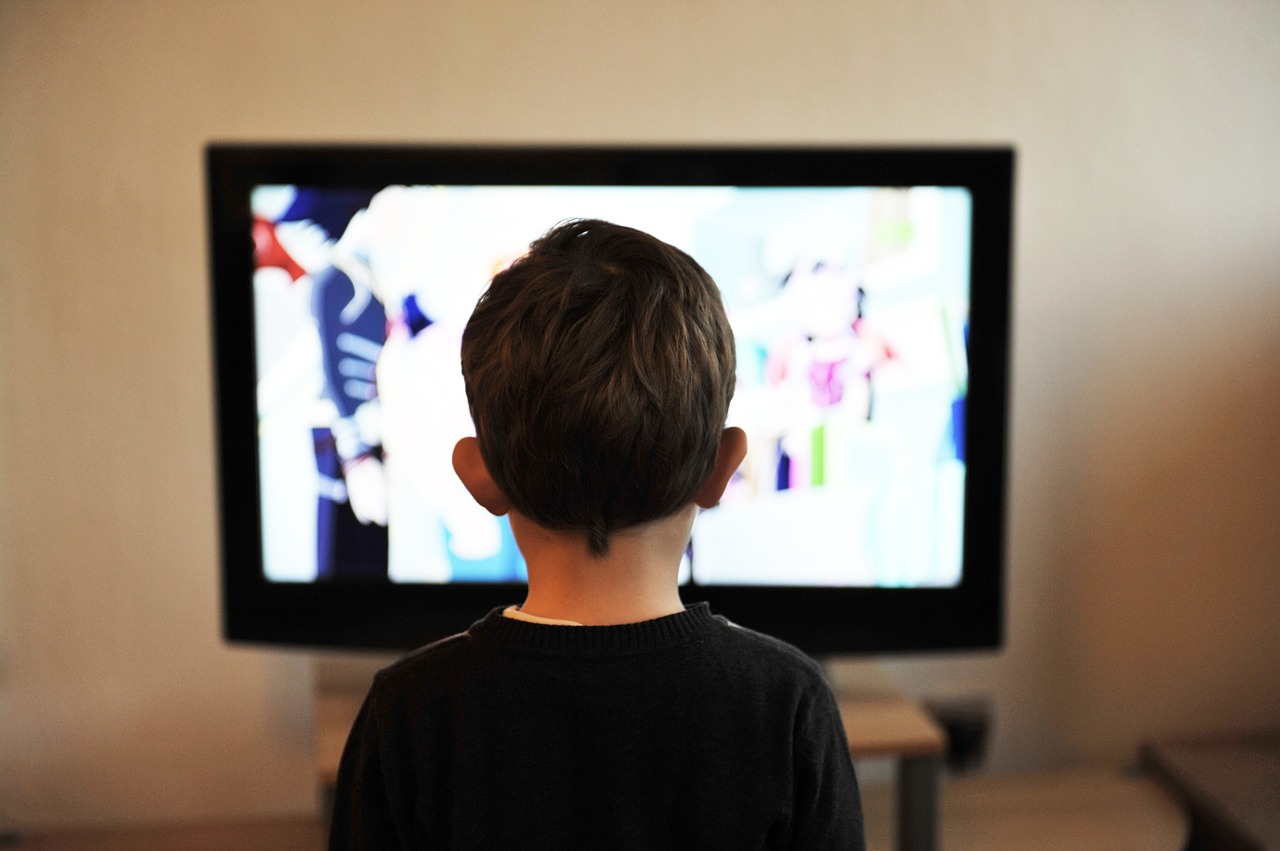“Max and Ruby, Ruby and Max”. Jingles from my children’s favorite television shows still circulate in my head.
Too much screen time is a real issue for young children. It’s a cause for concern, especially for toddlers. Teenagers too. Quality television in moderation can provide children and parents with needed breaks, as well as spur worthy conversations that promote positive social and emotional development. TV programs based on children’s literature provide further language connections.
Watching too much TV before the age of three has been linked to:
- Attention problems later in school
- Asthma
- Poor diet
- Delayed language
- Reduced parent and child interactions
The American Association of Pediatrics recommends children under two avoid the television completely. Children over two-years-old should be limited to no more than two hours of total screen time, including devices, computers, and TV. Television can offer a little bit of respite in our busy days, as well as being a source for conversation when the content is meaningful. It’s up to parents to decide how much if any is appropriate.
5 Really Sweet TV Programs for Preschoolers
I prefer preschool television shows that are based on classic children’s books. Linking what children watch to literature helps connect print to spoken language, as well as to the medium of film. Favorite characters on the pages of books become favorite characters on the screen. Here are five shows I enjoyed watching with my children when they were little.

Little Bear
I loved the Little Bear books when I was a child and was delighted to see it was a TV program. Little Bear has such a sweet relationship with his friends, parents, and grandparents. His imagination is entertaining, and he encounters problems appropriate for preschoolers to contemplate, like what happens when you break something? Max’s behavior is challenging at times, and Ruby can be a bit authoritative. There’s a great balance to the program. Of course, Maurice Sendak’s illustrations are perfect.

Max and Ruby
Max and Ruby are siblings. These beloved characters by Rosemary Wells are relatable in their interactions with one another. Anyone with a little brother can identify with Ruby, and vice versa for little brothers with big sisters and Max. We were sent “Max’s Chocolate Chicken”, another delightful episode from the TV series. One curiuous part of the plot is Max and Ruby’s parents are never present.

Curious George
H. A. and Margaret Rey’s books about Curious George has been entertaining children since the early 1970s. This monkey’s curiousity is always getting him into trouble, and the man with the yellow hat sorts out his antics. The love between them is clear and reinforces to children how parents love them even when they misbehave. The television show was actually developed by early childhood experts. It is one of nine program recommended by Common Sense Media. A 2012 study found the show actually supported learing in preschoolers.

Clifford the Big Red Dog
Who doesn’t want to grow up with a big, red dog? Clifford, Emily, and their friend provide social and emotional lessons for young children. Lessons on sharing and inclusion help children navigate their own peer relationships. This gentle series brings back fond memoris for parents and creates new fans of the next generation.

Babar
The first Babar book was written in 1937! The stories of Jean de Brunhoff have been adapted for television. Babar and his family go on many adventures. There is some violence with hunters and guns (Babar’s mother is killed). The plot originates from the actual book, and it should be discussed with children. Diversity is present in the series. Babar teaches that we are all the same on the inside. It also explores issues of wealth and class and thus is more appropriate for older preschoolers to grasp the concepts.
None of the above TV shows are annoying for parents to watch or hear in the background (think Cailou). I omitted ones where voices cause one to cringe. Also left out are shows that are overly flashy and provide too much stimulation.
Shows were largely chosen for the relationships between characters. They model effective and appropriate resolutions, as well as deep, enduring love. Educational TV does not have to be about learning information. Preschool programs are most effective in supporting social and emotional development.
What these shows have in common is the characters and plots originate with books. Parents and grandparents will remember them endearingly from their own childhoods, and thus enjoy sharing them with their children. Make screen time count by choosing quality shows for preschoolers.
What are your favorite shows for preshoolers?
Image: mojzagrebinfo / Pixabay

Leave a Reply